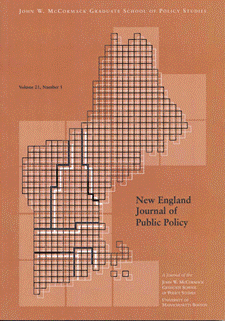Volume 21, Issue 1 (2006)
Robert Reich’s lecture at the installation of Dr. Michael Collins as Chancellor of the University of Massachusetts Boston this April was clarity itself: the future belongs to those who are educated — not to those who have graduated from high school or college, nor to those who have done post-graduate work — but to those who receive education that enables them to constantly adapt to new situations, including employment; continuing education has overtaken traditional modes of education obtained in discrete, often four-year modules.
In the United States, education as we know it is still basically aligned with a paradigm shaped by the demands of a mass production and mass consumption society. The assumptions of continuity and stability, which an economy organized on these principles inculcates, are embedded in how we think about the way we live our lives, organize our communities, plan families, and articulate our educational needs. Learners are taught “subjects.” As they grow older they learn increasingly more sophisticated levels of the “subject,” which is still conceptualized within compartmentalized structures of definition.
Front Matter
Editor's Note
Editor's Note
Padraig O'Malley
Articles
The Future of Learning
Robert B. Reich
The New Division of Labor in Massachusetts
Daniel Georgianna and Corinn Williams
Software and Internet Industry Workers: Implications for the Future of Work in Massachusetts
Sarah Kuhn and Paula Raymann
Malaysia in the Global Economy: Crisis, Recovery, and the Road Ahead
Daniel E. Charette
Democracy Means that the People Make the Law
Gerald Torres
The Future of Apologies
Aaron Lazare
Boston and New York: The City Upon a Hill and Gotham
Shaun O'Connell
Back Matter

Editors
- Editor
- Padraig O'Malley
- Managing Editor
- Patricia Peterson